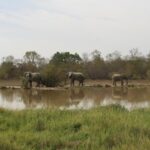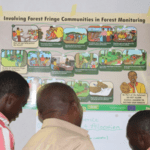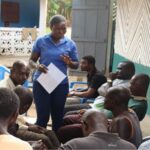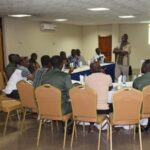Community
Building the capacity of communities on the
forest fringe
Overview
The significance of communities in natural resources politics is pronounced where communities, represented by their chiefs literally own all forest estates. Any solution or conservation gains in the forest sector that do not consider community education and aspiration is a mirage. This is because, experience and research over the years have shown that, not much impact is achieved in solving any environmental problem by limiting work to that particular environmental problem. For example, we cannot solve forest degradation by only working with timber companies. Local communities and community base organizations who better understand the terrain and are most affected by negative changes in the landscape need to be involved.
Why it matters
Around the world, local communities and indigenous peoples are key stewards of the natural places especially forest. They depend on forests for their ways of life. Over generations, many have developed knowledge and practices to sustainably use and protect natural resources. Yet local people face growing challenges to their ability to be good stewards.
What NDF is doing
NDF in collaboration with participating timber companies are engaging communities around concessions of these companies. The engagements involve Social Responsibility Agreements signing, developing complaint procedure for communities and explaining general rights and responsibilities within the forest laws of Ghana. NDF is also seeking to collaborate with other organizations to implement specific activities that ensure community members ability to monitor illegal forest operations in their localities.



